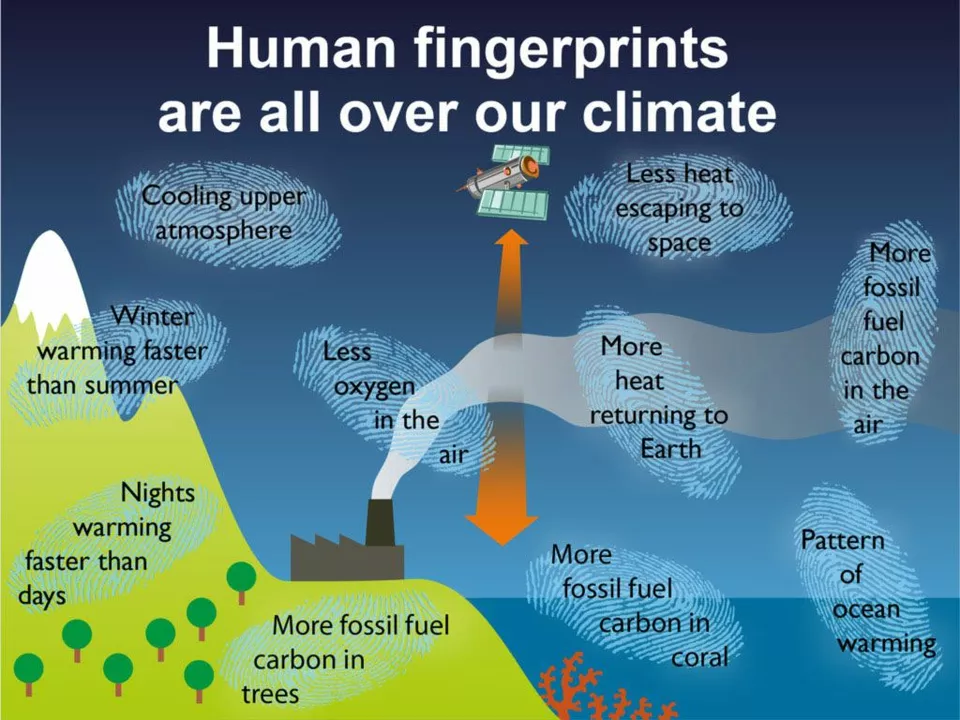
Understanding Climate Change and Its Effects
Climate change has become a pressing issue in recent years, with the world experiencing extreme weather events, rising temperatures and unpredictable weather patterns. As a result, the Earth's natural systems are being disrupted, causing a myriad of problems for humans and wildlife alike. One such consequence of climate change that is often overlooked is the impact it has on the spread of worm infections. In this article, we will explore the various ways in which climate change is affecting the prevalence of worm infections and what we can do to mitigate these effects.
The Link Between Climate Change and Worm Infections
Worm infections, also known as helminth infections, are a type of parasitic disease that affects millions of people worldwide, particularly in developing countries. These infections are caused by worms that live in the intestines of their host and can cause a range of health problems, from mild discomfort to severe organ damage. Climate change has a direct impact on the spread of these infections, as it creates the ideal conditions for worms to thrive and reproduce.
Increasing Temperatures and Humidity
As global temperatures continue to rise, so does the likelihood of worm infections spreading to new areas. Many worms, such as hookworms and roundworms, thrive in warm, moist environments. With temperatures increasing, these parasites are able to survive and reproduce more easily, leading to a higher number of infections. In addition, higher humidity levels create the perfect conditions for worm eggs to develop and hatch, further increasing the risk of infection.
Changing Rainfall Patterns and Flooding
Climate change has also caused significant shifts in rainfall patterns, with some regions experiencing more intense and frequent rainfall, while others are suffering from prolonged droughts. In areas with increased rainfall, the risk of flooding becomes greater. Flooding can lead to the contamination of water sources with fecal matter, which in turn can lead to the spread of worm infections. Moreover, floods can displace worm eggs and larvae from the soil, making it easier for them to come into contact with humans and animals.
Impact on Agriculture and Food Security
Changes in weather patterns and increasing temperatures can have a profound impact on agriculture, leading to reduced crop yields and increased food insecurity. In many developing countries, people rely on subsistence farming to survive, meaning they grow just enough food to feed their families. With climate change disrupting agricultural practices, many farmers are struggling to produce enough food. This can lead to malnutrition, which weakens the immune system and makes people more susceptible to worm infections.
Effects on Wildlife and Ecosystems
Climate change is not only affecting humans, but also the ecosystems and wildlife that we share the planet with. As habitats are altered and species are forced to adapt, the delicate balance of ecosystems can be disrupted. This can lead to an increase in the spread of worm infections among animals, which in turn can affect human populations. For example, some worms, such as the schistosomes, have a complex lifecycle involving multiple hosts. If one of these hosts becomes more abundant due to climate change, the worm population can increase, leading to a higher risk of infection for humans.
Adapting to the Challenge: Strategies for Prevention and Control
Given the growing threat that climate change poses to the spread of worm infections, it is essential that we take action to prevent and control these diseases. This can involve a range of strategies, from improving sanitation and hygiene practices to implementing community-wide treatment programs. Educating communities about the risks of worm infections and the importance of preventative measures can also go a long way in reducing the burden of these diseases.
Conclusion: The Urgency of Addressing Climate Change
The impact of climate change on the spread of worm infections is just one example of the far-reaching consequences of our changing planet. As we continue to grapple with the effects of climate change, it is crucial that we work together to address the root causes of this crisis and develop comprehensive strategies to mitigate its impact on human health and the environment. By taking decisive action now, we can help to ensure a healthier, more sustainable future for all.




jerry woo
April 29, 2023 AT 15:19Jillian Fisher
April 30, 2023 AT 11:59Rachel Marco-Havens
April 30, 2023 AT 18:44Kathryn Conant
April 30, 2023 AT 23:21j jon
May 1, 2023 AT 22:02Jules Tompkins
May 1, 2023 AT 22:26